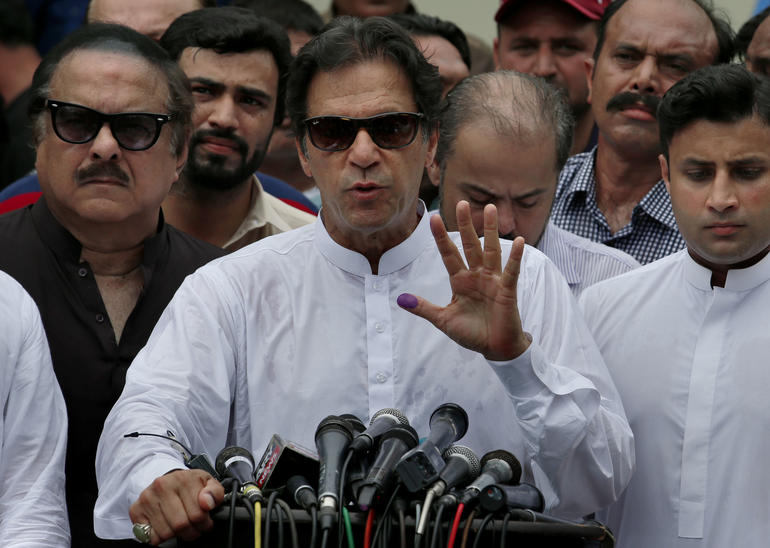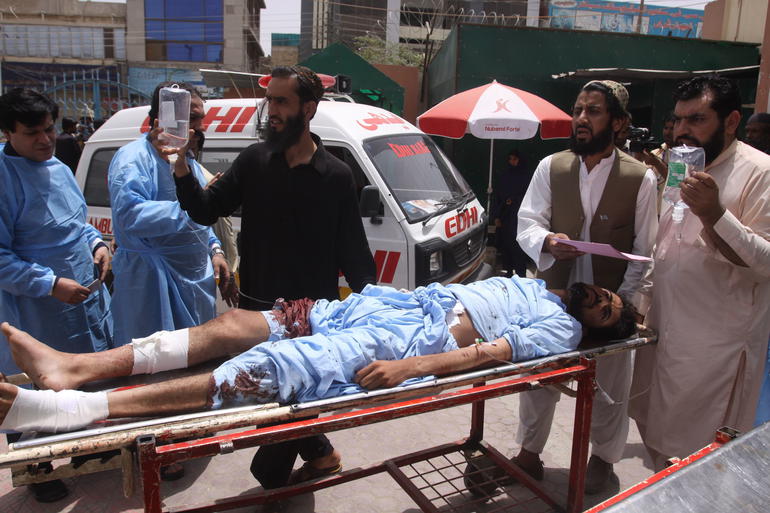Officials announced on Friday that the former cricket star Imran Khan's Pakistan Tehreek-e-Insaf (PTI) party had won 114 of the 269 seats being contested in the National Assembly.
Hours after the 65-year-old's victory was confirmed, he spoke to the nation saying his preferred form of government is "the Islamic State as established by the Prophet Mohammad in Medina".
"Today in front of you, in front of the people of Pakistan, I pledge I will run Pakistan in such a way as it has never before been run," he said.
Christian charity Open Doors' World Watch List places Pakistan as the fifth worst place in the world for Christian persecution.
Before the election, a Pakistani Christian leader told Open Doors: "Many Christians fear Imran Khan as the country's leader as he has said he wants to return to jirga, a traditional assembly of leaders that make decisions by consensus and according to the teachings of Pashtunwali - a series of non-written ethical codes which predate modern laws and which prove a dangerous mix in combination with Sharia, the strict Islamic law."
The charity added that the newly elected leader has spoken in support of Pakistan's infamous blasphemy laws.
Wilson Chowdhry from the British Pakistani Christian Association, told Premier News Hour before the election results: "Imran Kahn has openly said he would not change the blasphemy laws and insure that it's enforced.
"That blasphemy law has been a tool or discrimination and persecution for Christians since 1987."
Conversion from Islam often brings great shame to both a family and community in Pakistan as well as danger for new believers.
Khan's campaign message of a new Pakistan seemed to resonate with young voters in a country where 64 percent of its 200 million people are under 30 and only a tiny minority are Christians.
Meanwhile, analysts have expressed concern that disgruntled losers could create instability for the incoming government, which must deal with a crumbling economy, crippling debt and a raging militancy.
The voting was marred by a suicide bombing in the southwestern city of Quetta, the Baluchistan provincial capital, that killed 31 people as they waited to vote.
A bombing in the same province earlier this month killed 149 people, including a candidate for office.
The election marked only the second time in Pakistan's 71-year history that one civilian government has handed power to another.
Stay up to date with the latest news stories from a Christian perspective. Sign up to our daily newsletter and receive more stories like this straight to your inbox every morning.







